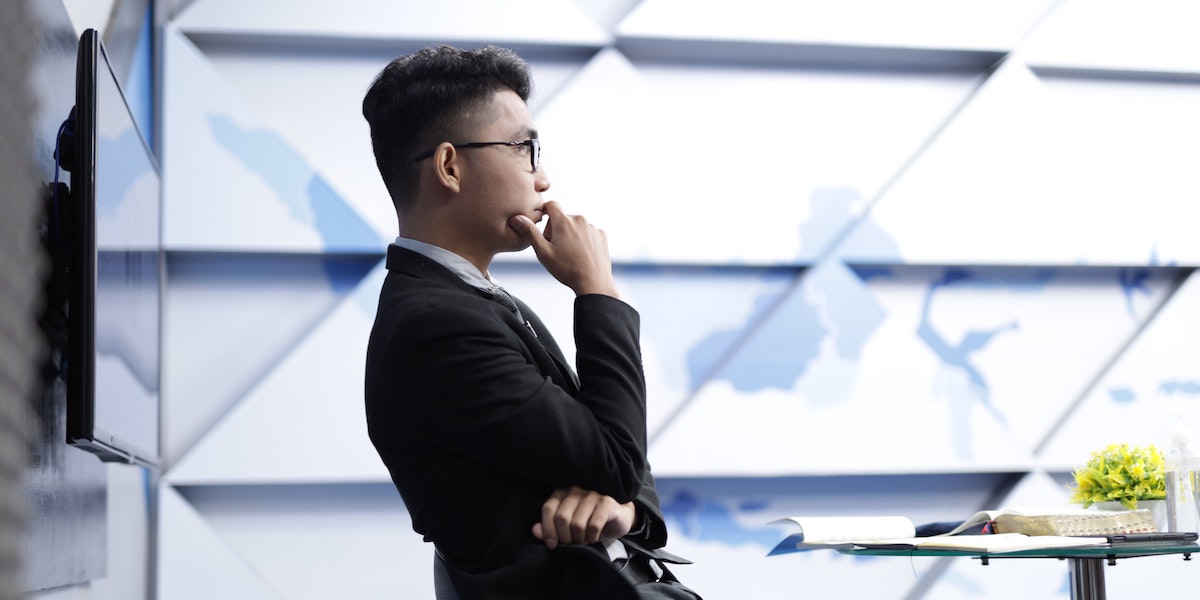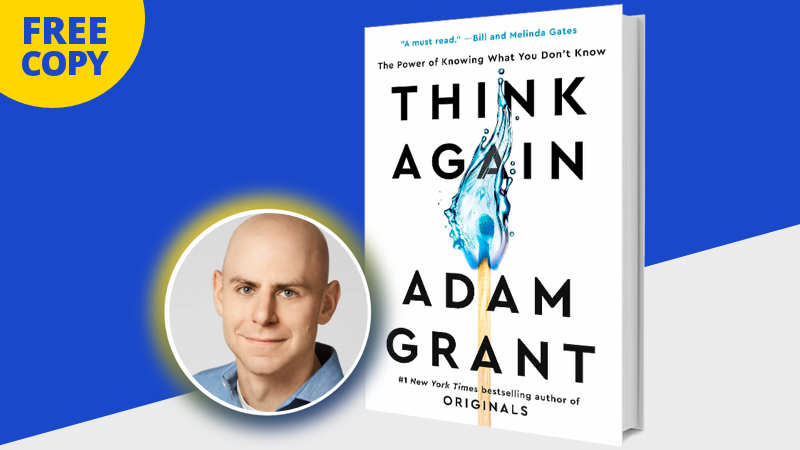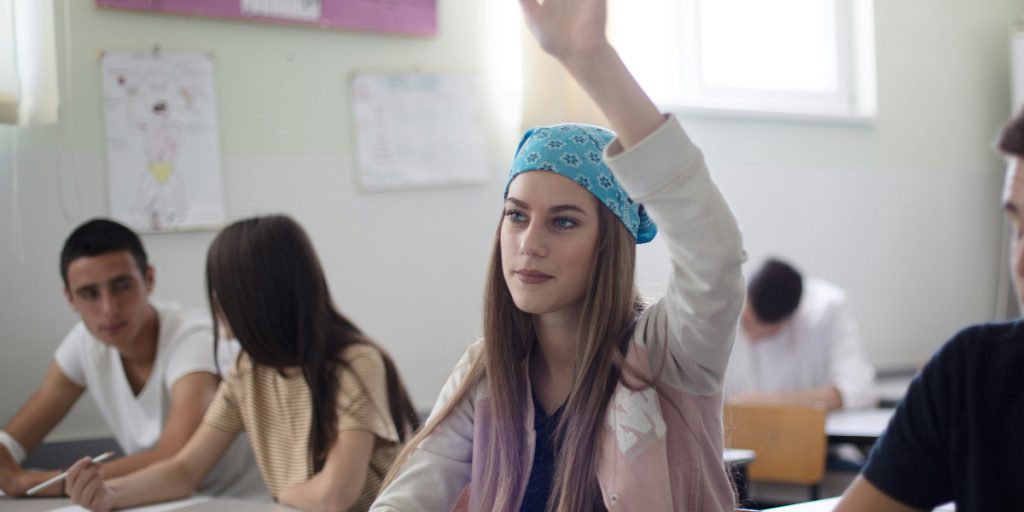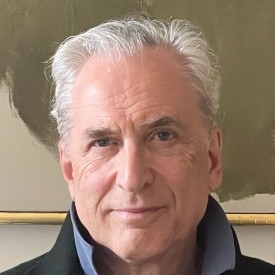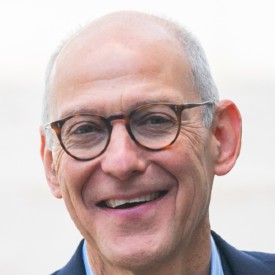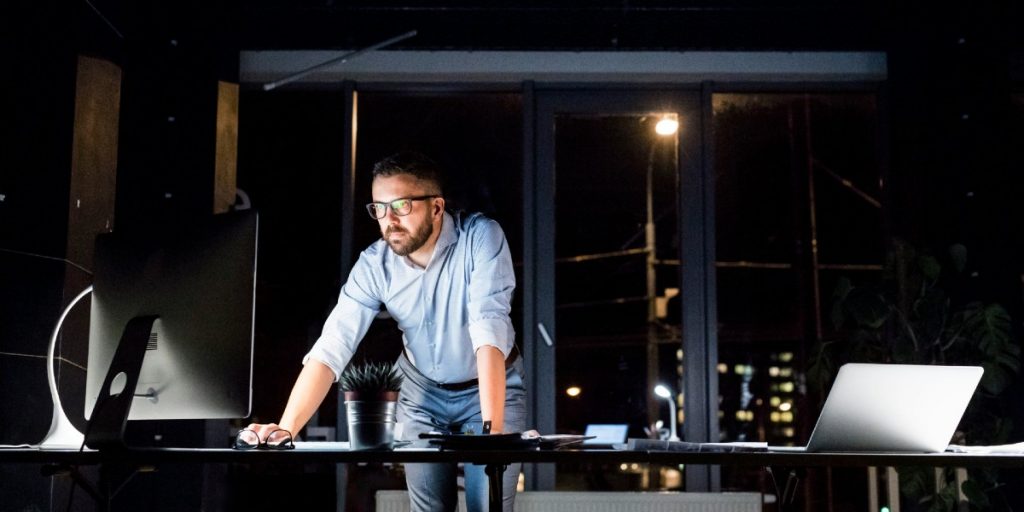Adam Grant is an organizational psychologist at Wharton, where he has been the top-rated professor for seven straight years. His talks have been viewed more than 25 million times, and his books—which include Originals, Give and Take, and Option B—have sold millions of copies.
Adam recently joined Next Big Idea Club Editorial Director Panio Gianopoulos to discuss his new #1 bestseller, Think Again: The Power of Knowing What You Don’t Know. Watch the full conversation below, or read an excerpt about the three things that Adam believes we should all be rethinking.
Panio: In your opinion, what are the three most important aspects of life that we should never stop thinking and learning about?
Adam: I think one thing that we should never stop rethinking is our responsibility. If you look at the events of last year, with the murder of George Floyd and the Black Lives Matter protests, a lot of people suddenly started rethinking what their responsibility was around fighting systemic racism. A lot of people, myself included, really focused on race there. But a lot of other groups were rightfully concerned that there wasn’t really an opening of the aperture when it comes to other categories of disadvantage.
Let’s take disability as an example. I saw some data recently that if you look at Fortune 500 companies’ diversity and inclusion statements and policies, only 7% of them even mention disability, let alone distinguish between mental and physical disabilities, and visible and invisible disabilities. There’s a ton of stigma there. I think that’s something we need to be thinking about how we can address and change. It’s this idea of constantly rethinking, “Okay, what systems might be unfair in the world? What groups might be disadvantaged or marginalized or excluded, and what is my responsibility and my opportunity to try to do something about that?” That’s something we should always be open to revising.
“If you look at Fortune 500 companies’ diversity and inclusion statements and policies, only 7% of them even mention disability.”
The second thing we should always be rethinking is our identity. I am stunned by how often people fall into this identity foreclosure trap, and get attached to this old sense of who they want to be. Part of the fun of identities is that you can find what Herminia Ibarra would call a “provisional self,” or testing out a possible self and saying, “All right, let me try that one on and see how it feels.” And we can do that with careers. We can do that with hobbies. We can do that with our families. I think there’s something to be said for identity experimentation and exploration.
The last thing that I think that we should always be rethinking is our routines and habits. One of the things that I think is saddest about the pandemic—in the everyday sense, not in the loss of life or threat of recession sense—is how long it took so many of us to question our basic habits. Like, “Okay, I try to have a pretty empty inbox by the time I go to bed. What if I let that go, and I answer emails in the morning instead?” I found that shifting a little bit of the email work to the morning gave me momentum; I felt like I was in a rhythm of responding and typing, and that made it easier to do some of my harder, more cerebral writing and thinking. It’s a small example, but I think a lot of us didn’t rethink routines about, “What do I want my commute to be?” and even, “Where do I want my home base to be?” We should be continually questioning those kinds of things.
Want a free copy of Think Again by Adam Grant? For a limited time, all Hardcover and eBook members of the Next Big Idea Club receive Think Again as a bonus book in their very first box. Sign up today!











